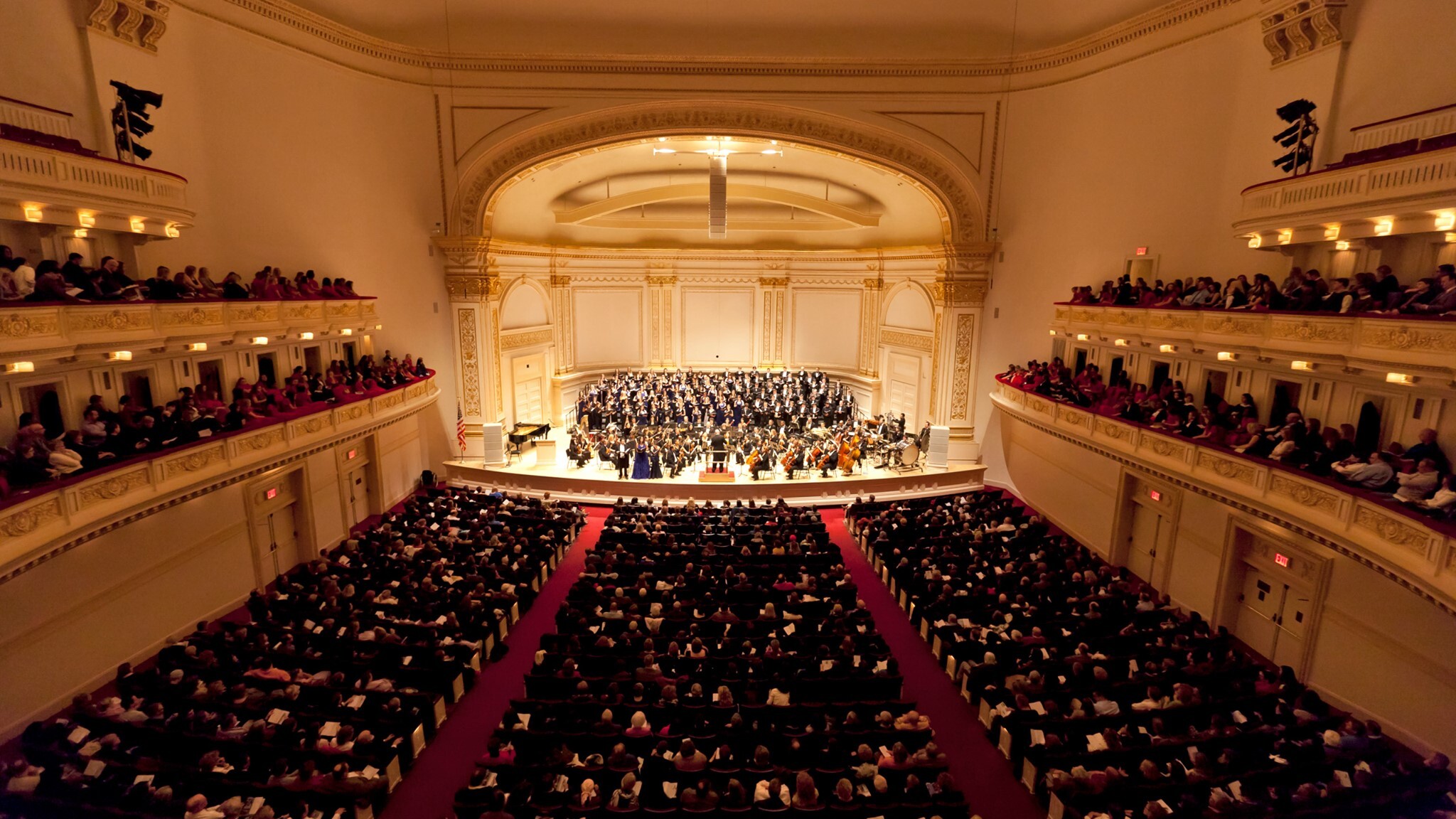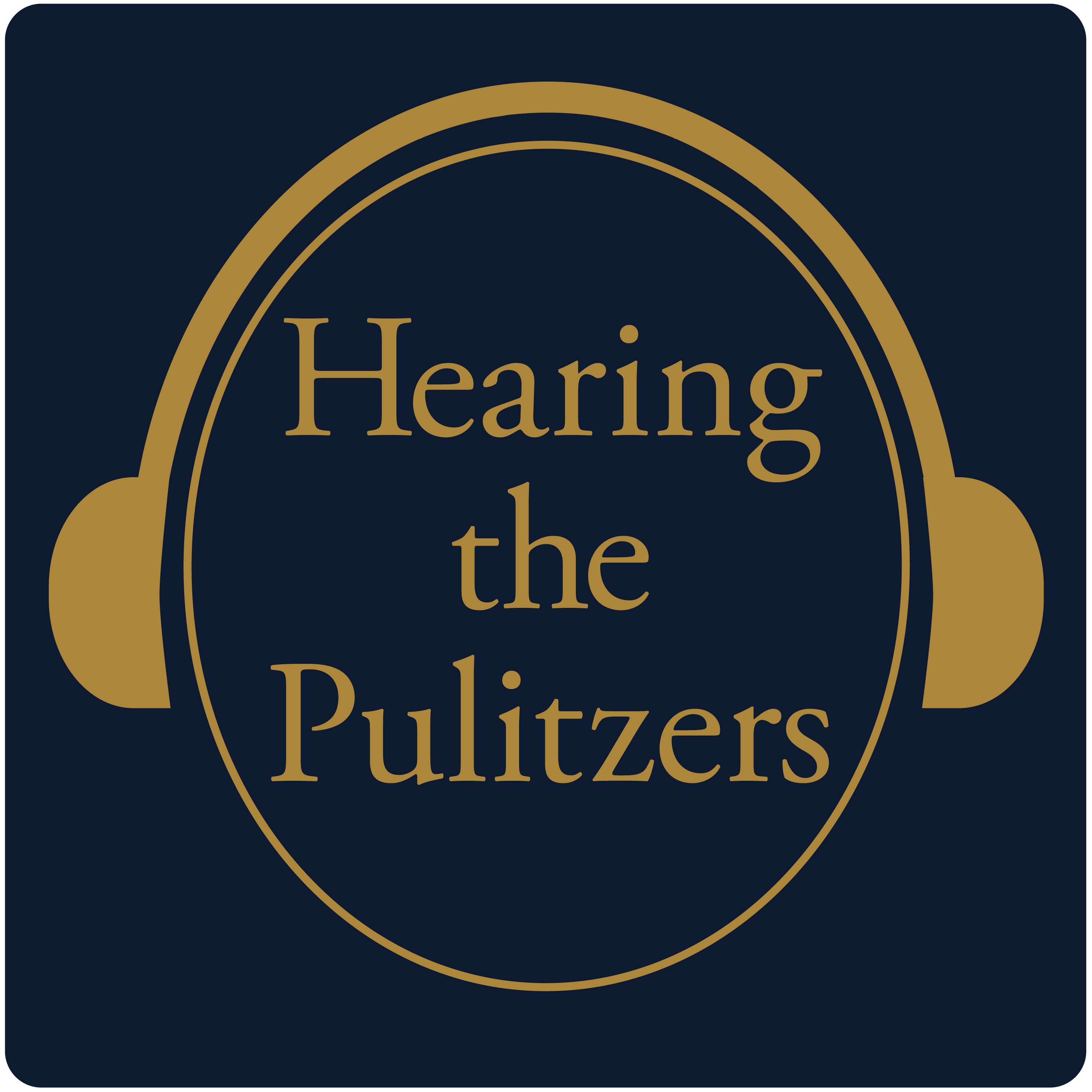Episodes
Friday Dec 13, 2024
Episode 55 - 1997: Wynton Marsalis, Blood on the Fields
Friday Dec 13, 2024
Friday Dec 13, 2024
In this episode, Dave and Andrew go deep into the tangled history surrounding the first jazz piece to ever win the Pulitzer Prize in Music, Wynton Marsalis's Blood on the Fields. But what will they think of the changes to the Pulitzer that allowed a largely-improvised piece to win an award previously reserved for notated music?
If you'd like more information about Wynton Marsalis, we recommend:
- Wynton Marsalis's official website
- Moving to Higher Ground: How Jazz Can Change Your Life by Wynton Marsalis and Geoffrey Ward
- David Stowe's article "The Diasporic Imagination of Wynton Marsalis," in The Black Urban Community, edited by Gayle T. Tate and Lewis A. Randolph (Palgrave, 2006)
- Matthew Alan Thomas's dissertation "Dynamic canons: How the Pulitzer Prize, documentary film, and the U.S. Department of State are changing the way we think about jazz," University of Southern California, 2011
Saturday Oct 19, 2024
Episode 54 - 1996: George Walker, Lilacs for Voice and Orchestra
Saturday Oct 19, 2024
Saturday Oct 19, 2024
In this episode, Dave and Andrew discuss a song cycle in all but name, George Walker's Lilacs. From the outside, this win looks like another lifetime achievement award, but is it? And does Lilacs remind them of music from an earlier period in the Pulitzer's history?
If you'd like more information about George Walker or Lilacs, we recommend:
- Ginger Sharnell Jones-Robinson's DMA document, "An Analysis of Selected Vocal Works by George Walker" from the University of South Carolina, 2023.
- Mikey Thomas Terry's interview with George Walker, The Musical Quarterly, Vol. 84, No. 3 (2000), pp. 372–88
- This short documentary on Walker and his music
Tuesday Oct 01, 2024
Episode 53 - 1995: Morton Gould, Stringmusic
Tuesday Oct 01, 2024
Tuesday Oct 01, 2024
In this episode, Dave and Andrew discuss a composer from an earlier generation winning a Pulitzer in the twilight of his career. What will they think of Stringmusic?
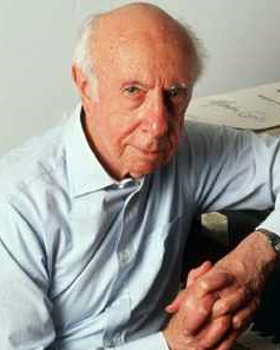
If you'd like more information about Morton Gould, we recommend:
- J. Wesley Flinn's article, "Developing Variation in the Late Work of Morton Gould and Why It Matters" Gamut vol. 10. no. 1 (2021)
- Lee Evan's dissertation, "Morton Gould: His Life and Music," Columbia University, 1978.
- Peter Goodman's book, Morton Gould: American Salute (Amadeus Press, 2003).
Wednesday Sep 11, 2024
Episode 52 - 1994: Gunther Schuller, Of Reminiscences and Reflections
Wednesday Sep 11, 2024
Wednesday Sep 11, 2024
In this episode, Dave and Andrew discuss one of the composers Dave wishes he had met, Gunther Schuller. But does Schuller's winning work Of Reminiscences and Reflections live up to his high expectations?

If you'd like more information about Gunther Schuller, we recommend:
- Schuller's autobiography, A Life in Pursuit of Music and Beauty
- The Gunther Schuller Society
- Read "The Compleat Musician in the Complete Conservatory" in Schuller's collection of essays, Musings.
Monday Jun 10, 2024
Episode 51 - 1993: Christopher Rouse, Trombone Concerto
Monday Jun 10, 2024
Monday Jun 10, 2024
In this episode, Dave and Andrew consider one of the few concertos to win the Pulitzer Prize, this time for an instrument whose sound some critics claimed grew "tiresome." Will they agree? And what famous composer's music is quoted in the piece?
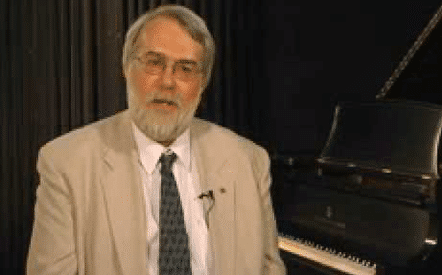
If you'd like more information about Christopher Rouse, we recommend:
- This interview with Joe Alessi mentioned in the episode.
- R. Burkhardt Reiter's 2005 dissertation, Symmetry and Narrative in Christopher Rouse's Trombone Concerto with white space waiting (an original composition for chamber orchestra).
- Laurie Shulman's article, "Christopher Rouse: An Overview" in Tempo, no. 199 (1997): 2-8.
Friday May 24, 2024
Friday May 24, 2024
In this episode, Dave and Andrew address one of the most controversial awards in Pulitzer history. What happened in 1992 and was Wayne Peterson's music worthy of the ruckus that grew around it?

If you'd like more information about Wayne Peterson, we recommend:
- Joshua Kosman's Obituary of the composer in the New York Times.
- Peterson's professional management service (with discography, video, etc.)
- The Boston Modern Orchestra Project's recording of The Face of the Night, The Heart of the Dark.
Friday Apr 19, 2024
Bonus: An Interview with Howard Pollack
Friday Apr 19, 2024
Friday Apr 19, 2024
In this episode, Dave and Andrew are joined by Howard Pollack, John and Rebecca Moores Professor of Music at the University of Houston. Dr. Pollack is the author of acclaimed biographies of several Pulitzer Prize winners from the early years, including a recent biography of two-time winner Samuel Barber.
Friday Mar 29, 2024
Episode 49 - 1991: Shulamit Ran, Symphony
Friday Mar 29, 2024
Friday Mar 29, 2024
In this episode, Dave and Andrew explore the second Pulitzer Prize in music won by a female composer, Shulamit Ran for her Symphony, in 1991. What will they think about this fourth freely-atonal work in a row to win the prize? And what snags did they run into researching this episode?

As mentioned in the podcast, here is Shulamit Ran performing with the New York Philharmonic in 1965:
If you'd like more information on Shulamit Ran, we recommend:
- Malcolm Miller, "Between Two Cultures: A Conversation with Shulamit Ran" Tempo, 2004, 58(227):15-32.
- "Casting Musical Spells: Time, Passion, and Inevitability in the Music of Shulamit Ran," In: Kouvaras, L., Williams, N., Grenfell, M. (eds) The Composer, Herself. Palgrave Macmillan (2023).
Tuesday Jan 30, 2024
Episode 48 - 1990: Mel Powell, Duplicates
Tuesday Jan 30, 2024
Tuesday Jan 30, 2024
In this episode, Dave and Andrew explore a composer who played with Benny Goodman as a jazz pianist, and then embraced Arnold Schoenberg's musical ideas as a member of the academy. What kind of music does that concoction create? Listen to this episode on Duplicates, Powell's winning piece for two pianos and orchestra.
If you'd like more information about Mel Powell, we recommend:
- Sally Lamb, “An Analytical Guide to the Works of Mel Powell.” DMA diss., Cornell University, 1988.
- Jeffrey Perry, "Constructing a Relevant Past: Mel Powell's Beethoven Analogs" American Music 29, no. 4 (2011): 491–535.
Finally, you might like to see Mel Powell in action with Benny Goodman:
Friday Jan 12, 2024
Episode 47 - 1989: Roger Reynolds, Whispers Out of Time
Friday Jan 12, 2024
Friday Jan 12, 2024
In this episode, Dave and Andrew explore a work for string orchestra that Kyle Gann opined was the first experimental composition to win the Pulitzer since Charles Ives. Given how much Dave loves Ives, how does he react to Whispers Out of Time? How does the piece fit in the context of music written in the late 1980s?
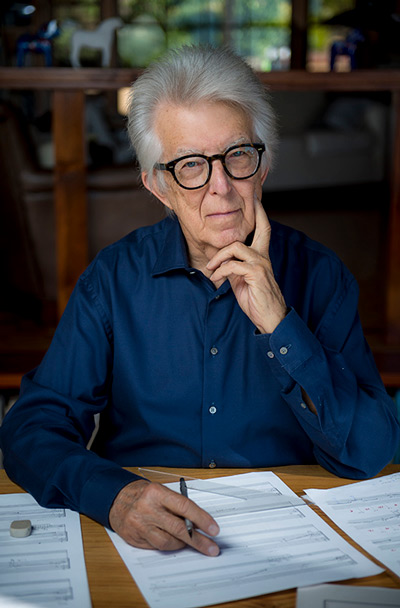
If you'd like more information about Roger Reynolds, we recommend:
- Kyle Gann's American Music in the 20th Century (Schirmer, 1997).
- Roger Reynolds's "Ideals and Realities: A Composer in America" American Music Vol. 25, No. 1 (2007): 4-49.
